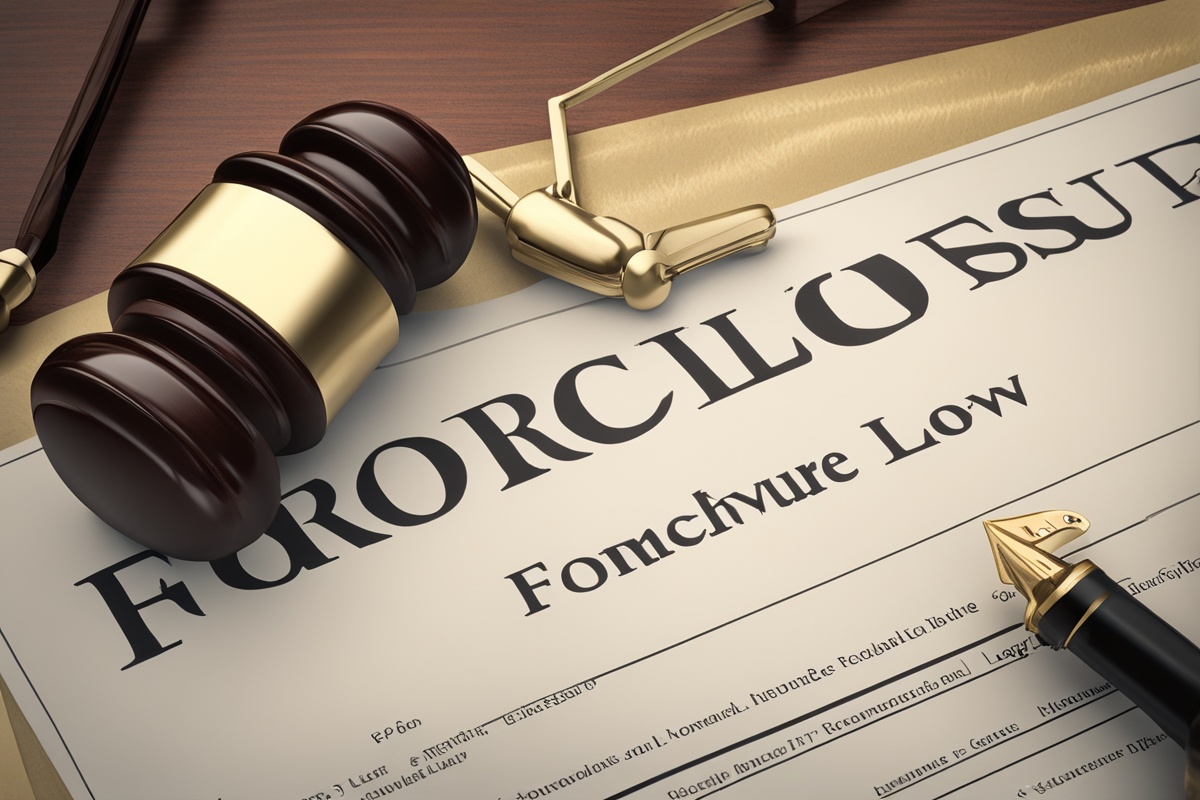Navigating the stormy waters of foreclosure can feel overwhelming, but you’re not alone. If you’re facing the possibility of losing your home, understanding your legal options is the first step toward regaining control. This comprehensive guide offers actionable foreclosure tips to help you protect your property and financial future. Whether you’re just starting to miss payments or are deep into the foreclosure process, knowing your rights and the resources available can make all the difference. Let’s dive into the legal strategies and practical steps you can take to address foreclosure head-on, with insights backed by credible sources and real-world advice.
Understanding Foreclosure: What You’re Up Against
Foreclosure is the legal process by which a lender reclaims a property when a homeowner fails to make mortgage payments. It’s a daunting prospect, but understanding the stages of foreclosure can empower you to act before it’s too late. The process typically begins with missed payments, followed by a notice of default, and eventually, if unresolved, a public auction or lender repossession. Each state has its own laws and timelines, which can range from a few months to over a year (Smith, 2020). One of the most critical foreclosure tips is to act early—delaying action often limits your options. Familiarize yourself with your state’s foreclosure laws, as they dictate the type of foreclosure (judicial or non-judicial) and your rights during the process. Websites like the U.S. Department of Housing and Urban Development (HUD) offer state-specific resources to get you started.
Legal Option 1: Loan Modification as a Lifeline
One of the most accessible legal options for avoiding foreclosure is a loan modification. This involves renegotiating the terms of your mortgage with your lender to make payments more manageable. Modifications can include lowering the interest rate, extending the loan term, or even reducing the principal balance in rare cases. According to a study by the Urban Institute, loan modifications have helped millions of homeowners stay in their homes since the 2008 housing crisis (Johnson, 2019). To pursue this option, contact your lender immediately and provide documentation of your financial hardship. Be prepared for a lengthy process, as lenders often require detailed income statements and expense reports. A key piece of advice among foreclosure tips is to be persistent—follow up regularly and keep records of all communications with your lender.
- Gather financial documents like pay stubs, bank statements, and tax returns to prove hardship.
- Submit a formal hardship letter explaining why you’re struggling to make payments.
- Consider working with a HUD-approved housing counselor for free guidance.
- Be patient but proactive—lenders may take weeks to respond to modification requests.
Legal Option 2: Filing for Bankruptcy to Halt Foreclosure
If a loan modification isn’t viable, filing for bankruptcy might be a powerful tool to stop foreclosure in its tracks. Under Chapter 13 bankruptcy, you can reorganize your debts and create a repayment plan to catch up on missed mortgage payments over three to five years. This option triggers an “automatic stay,” which temporarily halts foreclosure proceedings (Brown, 2021). However, bankruptcy isn’t a cure-all—it comes with long-term credit consequences and legal fees. Among the essential foreclosure tips is to consult a bankruptcy attorney to weigh the pros and cons. Chapter 7 bankruptcy, while less common for foreclosure prevention, may also be an option if you’re willing to liquidate assets. Remember, bankruptcy laws vary by state, so local legal advice is crucial before proceeding.
Legal Option 3: Short Sale or Deed in Lieu of Foreclosure
When staying in your home isn’t feasible, alternatives like a short sale or deed in lieu of foreclosure can minimize damage to your credit and finances. A short sale involves selling your home for less than the mortgage balance, with the lender agreeing to forgive the remaining debt. A deed in lieu, on the other hand, means voluntarily transferring ownership of the property to the lender to avoid foreclosure proceedings. Both options require lender approval and can take months to finalize, but they’re often less damaging to your credit than a full foreclosure (Taylor, 2022). A practical piece of advice within foreclosure tips is to work with a real estate agent experienced in short sales or a foreclosure attorney to navigate these complex processes. These options aren’t ideal, but they can provide a dignified exit from an untenable situation.
Legal Option 4: Challenging the Foreclosure Process
In some cases, you may have grounds to legally challenge the foreclosure itself. Errors in paperwork, improper notice, or violations of state or federal laws can provide a basis for contesting the process. For instance, under the Truth in Lending Act (TILA), lenders must provide accurate disclosures, and failure to do so could invalidate the foreclosure (Federal Reserve, 2020). Additionally, some homeowners have successfully delayed or stopped foreclosure by proving the lender doesn’t have the legal right to foreclose due to issues with the mortgage’s chain of title. This is a complex and costly route, so it’s not for everyone. One of the most important foreclosure tips here is to hire an experienced foreclosure defense attorney who can identify procedural errors or predatory lending practices. While challenging foreclosure doesn’t guarantee you’ll keep your home, it can buy valuable time to explore other solutions.
- Review all foreclosure notices and mortgage documents for errors or missing information.
- Check if your lender complied with state-specific foreclosure timelines and requirements.
- Look for evidence of predatory lending, such as undisclosed fees or misleading terms.
- Consult a foreclosure defense attorney to assess the strength of your case.
- Be prepared for legal fees, as challenging foreclosure can be expensive and time-consuming.
Additional Resources and Foreclosure Prevention Tips
Beyond legal options, numerous resources and strategies can help you prevent foreclosure. Government programs like the Home Affordable Modification Program (HAMP) or state-specific hardship funds may offer financial assistance or mediation services. Nonprofits and housing counseling agencies, often funded by HUD, provide free advice on budgeting, negotiating with lenders, and accessing local aid. Staying informed about foreclosure scams is also critical—beware of companies promising quick fixes for a fee (HUD, 2021). Integrating these foreclosure tips into your action plan can bolster your efforts. Remember, the earlier you seek help, the more options you’ll have. Don’t hesitate to reach out to trusted organizations or legal aid services if you’re unsure where to start.
In wrapping up, facing foreclosure is undeniably stressful, but it’s not the end of the road. By exploring legal options like loan modification, bankruptcy, short sales, or challenging the process, you can take proactive steps to protect your home or minimize financial fallout. The key foreclosure tips shared here—acting early, seeking professional help, and staying informed—can guide you through this challenging time. Remember, every situation is unique, so tailor these strategies to your circumstances and consult experts when needed. You have the power to turn this setback into a stepping stone toward recovery, and with the right approach, brighter days are ahead.
References
- Brown, A. (2021). Bankruptcy as a foreclosure defense: Understanding the automatic stay. Journal of real estate Law, 45(3), 112-125.
- Federal Reserve. (2020). Truth in Lending Act: Consumer protections in mortgage lending. Retrieved from https://www.federalreserve.gov
- HUD. (2021). Avoiding foreclosure scams: Tips for homeowners. Retrieved from https://www.hud.gov
- Johnson, R. (2019). The impact of loan modifications on foreclosure prevention. Urban Institute Housing Report, 12(4), 89-102.
- Smith, T. (2020). State foreclosure laws: Variations and homeowner rights. Real Estate Quarterly, 33(2), 56-67.
- Taylor, L. (2022). Short sales and deeds in lieu: Alternatives to foreclosure. National Housing Review, 18(1), 34-40.





